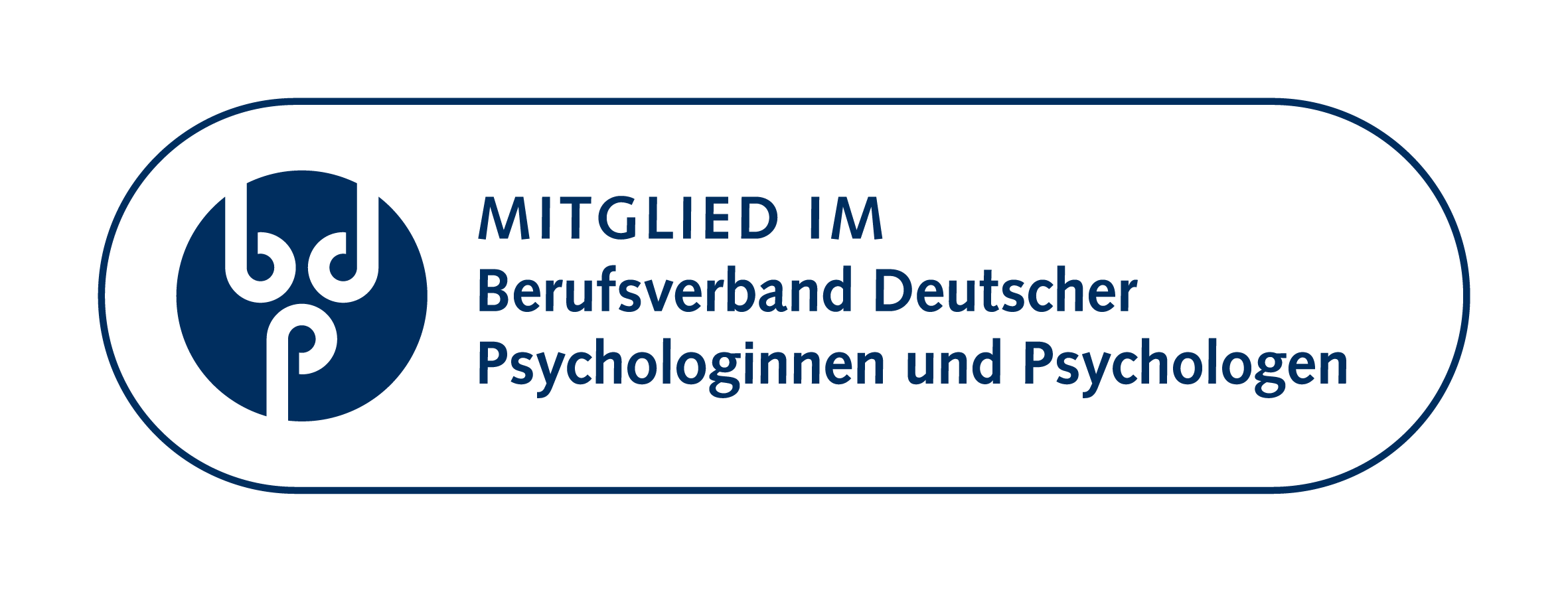Psychologist Reveals: 8 Signs of a Narcissistic Girlfriend
Psychologist Reveals: 8 Signs of a Narcissistic Girlfriend
10 Min. reading time · 20. August 2024
10 Min. reading time · 20. August 2024

As a psychologist and couples therapist, I sometimes encounter men in my practice who feel trapped in a relationship with a narcissistic partner.
Perhaps you know the feeling: you are unsure whether your feelings and perceptions are justified.
Questions like these might be running through your mind:
These questions are completely normal and an important first step towards clarifying your situation.
In this article, we will together explore the 8 signs of a narcissistic girlfriend and show ways you can protect yourself in such a relationship.
But first, let's answer the following question:
To protect yourself from a narcissistic partner, it is essential to set and maintain clear personal boundaries. This includes learning techniques for emotional detachment and, if necessary, seeking professional support. Building a supportive social network outside the relationship and prioritizing your own emotional health are also important.
In extreme cases, protection from narcissistic abuse may require the ending of the relationship.
As a psychologist, I have often experienced that the signs of a narcissistic personality can initially be subtle. Imagine a relationship like a tandem skydiving jump:
In a healthy relationship, both partners glide harmoniously through the air, supporting each other.
In a narcissistic relationship, however, one partner constantly tugs at the reins, controls the direction, and leaves the other dangling helplessly.

Especially unpleasant: When your partner publicly humiliates you.
Here are the 8 main signs you should look out for:
In couples therapy, it's important to emphasize that both partners are involved in the relationship dynamic.
While we work on the narcissistic tendencies, we also support the other partner in setting healthy boundaries and articulating their own needs.
The goal is a more balanced, respectful, and fulfilling relationship for both partners.
The consequences of a relationship with a narcissistic partner can be profound. Many of my clients report a feeling of emptiness, self-doubt, and a loss of self-esteem.
Let's look at an example from my practice:
Michael: "I feel so torn. Sometimes my girlfriend is the most loving person in the world, and then, out of nowhere, she treats me as if I'm worthless."
"My girlfriend treats me as if I'm worthless! I can't go on like this."
Me: "That sounds like a very emotionally distressing situation. Can you tell me about a specific incident?"
Michael: "Last week I had an important job interview. When I told her about it, she just said, 'Well, let's hope you don't mess it up again.' When I told her that hurt me, she said I was too sensitive and that she just wanted to motivate me."
Me: "I can understand why you feel hurt by that. How did you react to that statement?"
Michael: "I apologized and promised her I would do my best. But somehow, I felt even worse afterwards."
Me: "It's important to recognize that your feelings are valid. A supportive partner would take your feelings seriously and not dismiss them as 'oversensitivity'."
Do you feel like Michael? In my online psychological counseling, you can openly talk about your fears, worries, and wishes.
Together, we will find ways to overcome your challenges.
Don't hesitate to get to know me – I look forward to meeting you:
To protect yourself from narcissistic behavior, it's important to develop and maintain strong personal boundaries. Here's an exercise I often recommend to my clients:
The path out of a narcissistic relationship can be long and challenging, but it is possible. As a psychologist, I encourage my clients to reflect on their own needs and desires.
Paul: "I'm afraid to be alone if I end the relationship."
Me: "That fear is normal. But let's think about this: Do you truly feel less alone in your current relationship?"
Paul: (hesitates) "To be honest... no. Often I feel even lonelier when I'm with her."
"Often I feel even lonelier when I'm with her."
Me: "That's an important realization, Paul. Can you tell me more about when you feel lonely in the relationship?"
Paul: "Well, for example, when I want to talk about my day and she just rolls her eyes or shifts the topic back to herself. Or when I need support and she tells me not to be so sensitive, or that I'm an adult man and not a baby anymore..."
Me: "That sounds like your emotional needs are often not met in this relationship. How do you feel in those moments?"
Paul: (sighs) "Empty. Invisible. As if my feelings weren't important."
Me: "I understand. And now imagine you were single. How would you deal with those feelings?"
Paul: (thinks) "I... I would probably call my friends. Or my sister. They always listen to me."
Me: "That sounds like you already have a support network outside your relationship. How does it feel when you talk to them?"
Paul: (smiles slightly) "Good. Understood. As if I were important."
Me: "That's wonderful, Paul. The fear of being alone is understandable, but perhaps it's less about physical solitude and more about the feeling of being emotionally supported and valued?"
Paul: (nods slowly) "Yes, that... that makes sense. I hadn't even realized how much I had distanced myself from myself in this relationship."
Me: "That's an important realization. In our next sessions, let's work on how you can better perceive and communicate your needs, regardless of whether you stay in this relationship or not. The goal is for you to reconnect with yourself and build authentic connections."
Remember: Self-love and self-care are not selfishness. They are the foundation for healthy relationships.
In conclusion, I want to emphasize that the path out of a narcissistic relationship is not easy, but it is worth it.
With professional support, self-reflection, and building a strong support network, you can find a happier, more fulfilling life.
Do you feel like Paul? In my online psychological counseling, you can openly talk about your fears, worries, and wishes.
Book your appointment now:
Change in narcissistic personalities is possible but requires intensive work and commitment. The process involves profound self-reflection, cognitive restructuring, and learning new behavioral patterns. The narcissistic person must first recognize their problematic behavior and develop a strong desire for change. Behavioral therapy techniques can help develop empathic abilities and modify dysfunctional thought patterns. The change process is lengthy and requires patience, perseverance, and continuous self-reflection.
Typical signs include chronic feelings of worthlessness, emotional exhaustion, and the feeling of being manipulated. Those affected often experience a destabilization of their self-esteem and perception of reality through gaslighting techniques. From a behavioral therapy perspective, dysfunctional interaction patterns are often observed, such as excessive praise-seeking behavior in the narcissistic partner and avoidance behavior in the affected individual. A professional assessment by a psychotherapist can help identify and understand these dynamics. Behavioral analyses and cognitive restructuring techniques are often used to recognize and change relationship patterns.
A healthy relationship with a narcissistic person is extremely challenging and requires intensive work from both partners. From a behavioral therapy perspective, it is necessary to identify dysfunctional interaction patterns and replace them with healthier behaviors. This includes setting and enforcing clear boundaries, developing self-care strategies, and often professional support for both partners. The narcissistic partner must be willing to work on their behaviors and develop empathy, while the other partner must learn to protect themselves and articulate their own needs. Regular couples therapy can support the establishment and maintenance of new interaction patterns.
Then book a free 20-minute introductory call via video call. With me, you get a psychologist who
I look forward to hearing from you and remain with
Anticipation,
Your Patric Pförtner
Updated on: 11. Juli 2025
These articles might also interest you:
When Your Relationship Needs More Time: 7 Expert Tips from a Psychologist
Psychologist Reveals: 8 Signs of a Narcissistic Girlfriend
Female Narcissism: A Psychologist Explains Covert Patterns
"No more endless waiting lists"
Begin your journey immediately. You can schedule your first session within days, not months.
"Therapy that fits your life"
Evening sessions after work? Weekend appointments? Patric is here for you, not just during traditional office hours.
"Save time, money & stress"
No gas expenses, no parking fees, no commute time. Simply connect from the comfort of your home. Save precious time.
Step 1 of 4






25+ Customer Reviews
You can find more current reviews on my Google profile.
Hats off!
I would give Patric a whole starry sky for his professional, human and authentic being and doing. Hats off! Our deep dive conversations, full of reflection opportunities, development chances and growth impulses give me valuable insights into my own inner compass. From the heart, I can recommend Patric as a 5-star coach who masterfully practices the art of psychological counseling - with great joy, a touch of humor and lots of lightness. Thank you, Patric!

What a life-affirming mindset
Patrick has a very open, understanding and empathetic way of conducting conversations, this and his life-affirming but at the same time realistic mindset makes it easy to open up and talk about problems/difficulties. He manages to create a safe space with a pleasant atmosphere for the conversations within a short time. Thank you

My emotional jungle
In the conversations with Patric, I quickly felt very comfortable. He meets you at eye level, is attentive, warm, there's also laughter and he naturally listens very well. Thank you for walking together through my emotional jungle and stopping and looking more closely where it was necessary! This helps to handle the jungle better.

I hope you can help many more
Patrick is empathetic and addresses my concerns and worries. Despite the online sessions, Patrick can establish a good connection with me. I feel comfortable and trusted in the conversations with him and we continue to work on dissolving limiting beliefs. Thank you very much Patric. Greetings from Amsterdam

Mr. P. is the right choice
I had the pleasure of meeting Mr. P. when I was looking for professional and empathetic psychological support. In the following months, I was impressed. He has proven to be a true expert in the field of psychology. He knows how to engage with the person and address their specific needs and concerns. I always felt respected and understood. He was empathetic and compassionate. He creates a warm and welcoming atmosphere that made it easy for me to open up and share my deepest fears and worries. If you are looking for a psychologist who is truly capable of helping you, then Mr. P. is the right choice.

Impulses that open your eyes!
Patric remains completely true to his name. As Mr. Pförtner (doorkeeper), he tried to close the door to my past with clarity and new awareness. So that a new door can then open. The one into a new phase of life after a highly transformative time of my healing. He opened my eyes through certain impulses... gave me new eyes. As a meaning-maker, I became a winner and moved away from being a victim. With this sublime feeling for myself and the keys that Patric gave me, I thank him from the bottom of my heart. May he also lead you to yourself and your inner peace. That's where his gift lies. Kera🦋

Dedication and passion
Patric was there for me when I experienced a major and unexpected crisis in my life. His support went far beyond what I would have expected from a psychologist. The dedication and passion he puts into his work is even more impressive in hindsight, because I only found him through pure luck when I was desperately searching for an online psychologist. I can only warmly recommend working with Patric. He is not only an extremely competent professional, but also an exceptionally empathetic and caring person. I will continue to work with Patric and consider myself lucky to be able to count on him.

Opening up becomes natural!
First I would like to appreciate the time he took to help me. Patric has the energy that will comfort you and opening up becomes natural. He gave me techniques to try that helps me when I have an anxiety attack. He left me feeling human again and the thought that humans are not perfect and that is okay.

A help for big and deep worries
Two open ears and well-considered advice. No problem seems impossible, no question is sent out into the world without an answer. A help for big, especially deep worries, or simply a stable guide for everyday life. Reliable, friendly, understandable, as well as understanding.

I am grateful for the many exciting sessions
Patric combines scientific insights with practical help that can be directly integrated into everyday life. I am grateful for the many exciting sessions and the results achieved🙏

Lightness
He gave me lightness during a very difficult time

Constructive and uplifting
The conversations with Mr. Pförtner were very constructive and uplifting. There was a personal touch and at the same time an objective steering of the topic, which I liked.

Best psychologist
Best psychologist you could ever imagine! I am grateful to have Patric as my psychologist!

Then secure your non-binding initial consultation with psychologist Patric Pförtner now.
Free Initial ConsultationNo diagnoses are made in my psychological online counseling. Please note that the counseling provided here does not constitute psychotherapy within the meaning of the PsychThG. According to German law, psychotherapy can currently only take place through personal contact. Before treatment, the psychotherapist makes a diagnosis. They determine what illness you have, for example 'Depressive Episode', 'Social Phobia'.
In case of acute psychological crises, contact a licensed psychiatrist or psychotherapist in your area. In urgent cases outside office hours, contact the medical emergency service of the Association of Statutory Health Insurance Physicians at the free phone number 116 117. In life-threatening cases, please call the emergency services at emergency number 112.

Your first step
The thought of counseling with a psychologist may initially be somewhat unsettling - that's why I want to offer you a relaxed initial consultation.

Quality seal for psychological counseling awarded by the Professional Association of German Psychologists (BDP).

Registered full member of the Professional Association of German Psychologists.

For my work, the BDP has awarded me the quality seal "Counseling by Psychologists". This quality seal serves as a guideline for high-quality counseling.

Copyright © Patric Pförtner 2025
Website made by WebWizr.eu
Emergency Help: In emergencies or severe psychological crises, please contact the emergency number 112 or the medical emergency service (Tel: 116 117).
Psychologist & Couples Therapist
Knowledge Center
Counseling Services
Schedule a free 20-minute introductory consultation:
Wir nutzen Cookies
Diese Website verwendet Cookies, um die Benutzerfreundlichkeit zu verbessern. Hier können Sie mehr erfahren: WEITERLESEN.